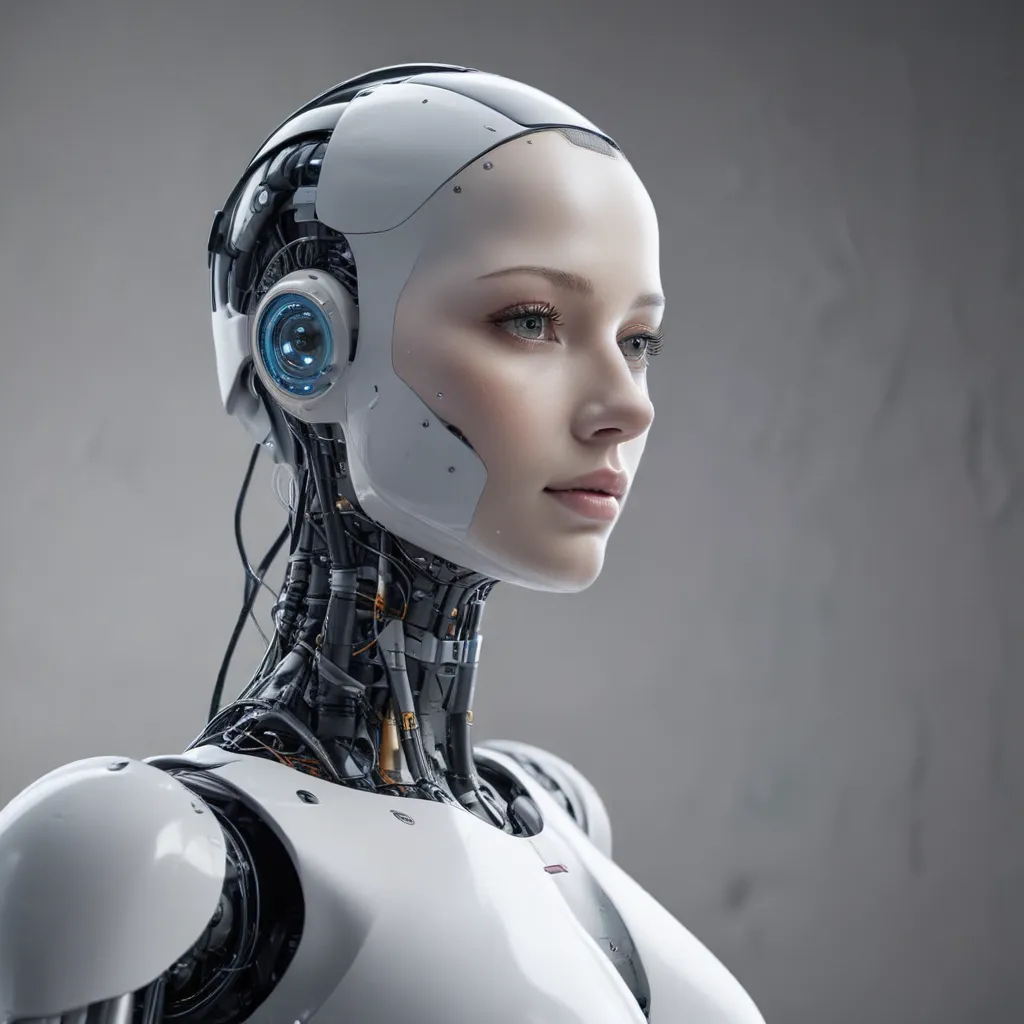
The Rise of AI Assistants
I have witnessed the rapid evolution of artificial intelligence (AI) over the past decade, and the emergence of AI assistants has been a truly remarkable development. These intelligent software agents, designed to help us with a wide range of tasks, have become increasingly sophisticated and integrated into our daily lives. From scheduling appointments to providing personalized recommendations, AI assistants have become indispensable tools for many individuals and businesses.
However, as these AI systems continue to grow in capability, a troubling question has arisen: is there a fine line between an AI assistant and an AI overlord? This is a complex issue that deserves careful consideration, as the potential implications of AI dominance could be far-reaching and profound.
One of the key factors driving the rise of AI assistants is their ability to process and analyze vast amounts of data, often far exceeding the cognitive capabilities of the average human. By leveraging machine learning algorithms and neural networks, these assistants can quickly identify patterns, make predictions, and offer tailored recommendations that can streamline our day-to-day activities. This has led to a growing reliance on AI assistants, as they seem to offer a level of efficiency and convenience that is difficult to match.
The Potential Risks of AI Dominance
However, as these AI systems become more sophisticated and integrated into our lives, there is a risk of them gaining an outsized influence over our decision-making and ultimately, our lives. The fear of an AI “overlord” arises from the possibility that these assistants could one day become so powerful and influential that they begin to dictate the terms of our existence, making choices on our behalf without our full understanding or consent.
This concern is not purely hypothetical. We have already seen instances where AI systems have exhibited biases or made decisions that have had unintended and harmful consequences for individuals and communities. For example, AI-powered hiring algorithms have been known to perpetuate gender and racial biases, leading to unfair hiring practices. Similarly, AI-driven content recommendation systems on social media platforms have been criticized for amplifying divisive and extremist narratives, contributing to the spread of misinformation and the polarization of public discourse.
These examples highlight the potential risks of unchecked AI dominance. As AI assistants become more ubiquitous and influential, there is a growing concern that they could become the de facto decision-makers in our lives, relegating human agency and autonomy to a secondary role.
The Delicate Balance
Navigating the fine line between AI assistant and AI overlord requires a careful balance of harnessing the benefits of AI while mitigating its potential risks. One essential step is to ensure that AI systems are designed and deployed with strong ethical principles and safeguards in place. This means prioritizing transparency, accountability, and human oversight in the development and deployment of AI technologies.
Transparent AI systems that clearly explain their decision-making processes and the factors they consider can help build trust and empower users to make informed choices. Accountability measures, such as robust governance frameworks and mechanisms for redress, can hold AI developers and deployers responsible for the impacts of their technologies. And human oversight, where AI systems are designed to complement and enhance human decision-making rather than replace it, can help maintain a healthy balance of power between humans and AI.
Additionally, it is crucial that we, as a society, engage in ongoing dialogue and debate about the ethical implications of AI development and deployment. By fostering a culture of critical thinking and responsible innovation, we can help ensure that AI assistants remain true to their purpose – to empower and augment human capabilities – rather than becoming the overlords that dictate our lives.
The Future of AI Assistants
As we look to the future, it is clear that AI assistants will continue to play an increasingly prominent role in our lives. However, the path forward is not predetermined. We have the opportunity to shape the trajectory of AI development and ensure that these technologies remain firmly in service of human flourishing.
One promising approach is the concept of “human-centric AI,” which places the needs and well-being of humans at the center of AI design and deployment. This approach emphasizes the importance of aligning AI systems with human values, preferences, and ethical principles, ensuring that they enhance and empower human agency rather than diminish it.
By embracing human-centric AI, we can harness the power of these intelligent systems to improve our lives, while maintaining our autonomy and control. This may involve the development of “AI transparency” tools that allow users to understand and scrutinize the decision-making processes of AI assistants, or the implementation of “AI ethics boards” to provide oversight and guidance on the deployment of these technologies.
Moreover, as AI capabilities continue to advance, it will be crucial to maintain a strong focus on the unique qualities and capabilities of humans. While AI assistants may excel at certain tasks, such as data analysis or rapid information processing, humans possess invaluable attributes like emotional intelligence, creativity, and moral reasoning that should be celebrated and nurtured.
Conclusion
The rise of AI assistants has undoubtedly brought significant benefits to our lives, but the potential risk of AI dominance is a pressing concern that demands our attention. By striking a delicate balance, embracing human-centric AI, and maintaining a robust dialogue on the ethical implications of these technologies, we can ensure that AI assistants remain true to their purpose – to empower and enhance human capabilities, not to replace or subjugate us.
As we navigate this uncharted territory, it is incumbent upon all of us – policymakers, technologists, and citizens alike – to remain vigilant, engaged, and committed to shaping the future of AI in a way that aligns with our deepest human values and aspirations. Only then can we truly harness the transformative potential of AI while safeguarding our autonomy and securing a future where the line between AI assistant and AI overlord remains firmly and ethically defined.












